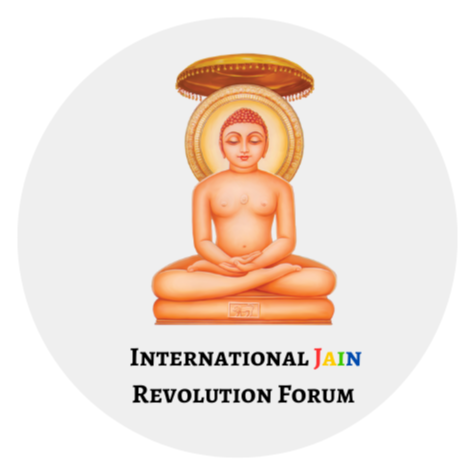
Jain Principles: The Soul of Jain Revolution
In a fast-paced world driven by consumption, conflict, and chaos, ancient wisdom often takes a backseat. But what if those very teachings could be the key to solving modern issues like violence, stress, environmental decay, and ethical breakdowns? That’s the soul behind the Jain Revolution — a movement rooted in timeless Jain principles designed to inspire change within ourselves and in the world.
Let’s explore the core Jain principles that can guide us toward a more peaceful, compassionate, and purposeful life.
1. Understanding the Essence of Jainism
Jainism is one of the oldest spiritual traditions, founded on non-violence and self-discipline. With roots stretching back over 2,500 years, it teaches that every soul has the potential for divine enlightenment, but liberation (moksha) can only be attained through personal effort, ethical conduct, and mental purity.
The religion is defined by five central vows known as the Pancha Mahavratas:
- Ahimsa (Non-violence)
- Satya (Truth)
- Asteya (Non-stealing)
- Brahmacharya (Celibacy/Moderation)
- Aparigraha (Non-possession)
These vows are not just for monks and nuns — they offer a moral compass for anyone seeking a life of inner peace and outer harmony.
2. Ahimsa – Non-violence in Its Purest Form
Ahimsa is the heart of Jainism. It goes beyond physical harm to include violence in speech and thought. In a world plagued by aggression — be it road rage, bullying, or war — Ahimsa urges us to respond with empathy and understanding.
Even the Jain diet reflects this principle, avoiding meat, eggs, and even root vegetables, which are believed to destroy plant life at its source. This level of compassion encourages mindfulness in how we treat all living beings — from insects to ecosystems.
3. Satya – The Power of Truth
Truth is more than just not lying — it’s about living authentically. Practicing Satya means being honest in your relationships, your work, and most importantly, with yourself. In a time of digital manipulation, fake news, and false branding, embracing truth builds trust and transparency.
4. Asteya – Non-stealing and Contentment
Asteya promotes not taking anything that doesn’t belong to you — whether it’s someone’s belongings, time, credit, or peace of mind. It also points toward living with integrity and respecting the efforts of others. In today’s hyper-competitive culture, Asteya reminds us to be fair, to earn ethically, and to find satisfaction in what we have.
5. Brahmacharya – Channeling Desire
Often misunderstood as strict celibacy, Brahmacharya is about self-control and channeling desires wisely — in thoughts, words, and actions. In everyday life, this could mean resisting overindulgence in food, consumer goods, or digital media. Moderation helps cultivate clarity, self-control, and inner resilience. It allows you to pause and make thoughtful choices instead of reacting impulsively.
6. Aparigraha – Letting Go of Attachments
Today’s world tends to celebrate excess — accumulating more money, chasing greater achievements, and acquiring countless possessions. But Jainism promotes Aparigraha, the practice of limiting material possessions and letting go of attachment. This doesn’t mean renouncing everything. Instead, it’s about owning things without letting them own you. Aparigraha encourages a minimalist lifestyle that leads to more joy, less stress, and greater spiritual freedom.
7. The Role of Karma in Jain Philosophy
Jains believe that every action, intention, and emotion leaves a karmic imprint on the soul. Unlike popular interpretations of karma as divine punishment, Jain karma is a natural law — like gravity. Good actions polish the soul; harmful actions weigh it down. By following the five vows, one can reduce karmic bondage and move closer to liberation. The Jain Revolution emphasizes self-responsibility — you are the architect of your destiny.
8. Anekantavada – Embracing Multiple Perspectives
Anekantavada means “non-absolutism” — the idea that reality is complex and cannot be fully understood from just one point of view. This principle promotes open-mindedness and tolerance. In a divided world where people often clash over beliefs, Anekantavada invites us to listen more, argue less, and understand that everyone sees the world through their own lens.
9. Jainism and Environmental Responsibility
Well before sustainability entered mainstream conversations, Jains were already living by its principles as a core part of their spiritual practice. Jain principles naturally align with eco-conscious living — be it the plant-based diet, avoiding harm to soil and water, or limiting the use of resources. Living with less, consuming mindfully, and respecting all life forms make Jainism one of the most environmentally friendly spiritual paths.
10. The Jain Lifestyle – A Modern-Day Blueprint
You don’t have to be a monk to live like a Jain. Even small practices can lead to transformation:
- Begin your day with samayik (meditation).
- Eat a simple, plant-based meal.
- Speak kindly and truthfully.
- Reflect on your actions before sleeping.
- Avoid overconsumption and waste.
These practices cultivate mindfulness, which is the foundation of spiritual and mental wellness.
11. The Jain Revolution – Awakening the Inner World
The Jain Revolution isn’t about changing others — it’s about changing yourself. It’s a call to awaken your conscience, challenge your habits, and commit to a higher path. It’s about starting a chain reaction — one peaceful soul at a time. If even a fraction of the world embraced Ahimsa or Aparigraha, imagine how much violence and greed would disappear overnight.
12. Why Jain Principles Matter Now More Than Ever
Our world is in crisis — politically, environmentally, mentally. Jain values are not just religious ideals but practical solutions:
- Ahimsa can reduce war and violence.
- Aparigraha can ease climate change.
- Satya can restore trust in society.
- Anekantavada can bridge divides in politics and religion.
Conclusion: Be the Change, Walk the Path
You don’t need a temple or rituals to start your Jain journey. The path is inward. By embodying non-violence, truth, simplicity, and mindfulness, you not only purify your soul but also uplift society.
